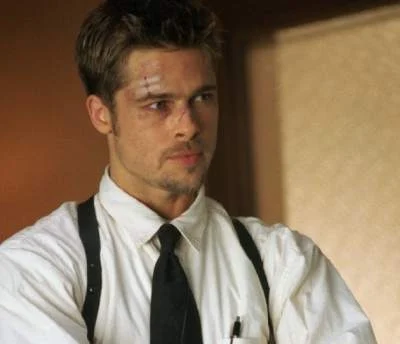You may have recently read our report on TG Daily about the demise of the typewriter. If they do go the way of the dinosaur soon, it certainly won’t hurt the top screenwriters of Hollywood, who joined the computer age aeons ago.
Yet the story of the demise of typewriters did take me back to when I spoke to a number of top screenwriters about how they crafted their screenplays, and what technology they used to do it.
At least one screenwriter, Joe Eszterhas, the man who gave us Showgirls, didn’t join the computer age, and had a closet full of typewriters he’d write his scripts with.
Having moved out of the Hollywood limelight after the catacylsm of Showgirls, I have no idea what Joe writes with now, but considering he wrote a big pimpy book for Knopf, I would assume he has a computer, or someone who can scan his pages to a computer file. (And Eszterhas types with two fingers, his middle fingers appropriately enough.)
Up to the Kill Bill era, Tarantino hadn’t joined the computer age either, and he either typed out, or had someone type his scripts on a word processor.

At the Creative Screenwriting Expo, Se7en screenwriter Andrew Kevin Walker recalled, “There wasn’t spell-check when I started writing…way back when! I actually wrote my first stuff on an electric typewriter, then I had a word processor and the files weren’t big enough to take a whole script, so I had to break Se7en down into five separate files. I’d stop one and move on to the next, and if I changed something and if the end of the page on one file got shorter, then I had to go back in and shorten that one, then I had to shorten and adjust all the other files. It’s more easy now than ever because of Scriptware and Final Draft. You can hand in a professional looking piece of material to somebody.”
Long before the days of word processors and computers, the manual Underwood typewriter was the standard for writers. (In Hollywood, screenwriters were often called “schmucks with Underwoods.”)
Then came electrics and as Carl Gottlieb, the screenwriter of Jaws, recalls, “People switched to electrics always did so with a bit of reluctance because once you switched there was no going back to a manual.
The muscles you needed in your fingers and wrists to operate a manual typewriter went slack because you didn’t have to hit a carriage return, you didn’t have to press the keys to make the key strike and leave an impression. But the technology was still similar and understandable. You could change a ribbon, then they created white-out ribbons to correct mistakes. IBM was really at the forefront of all that. And you used carbon paper to make copies because Xerox machines were expensive and they weren’t everywhere like today.”
The next step up in technology, the early personal home computers, were of course quite primitive compared to what’s available today. Bob Gale got his first computer in 1980, which was an Atari 800 hooked up to a black and white television, one of the only home computers you could buy at the time, other than a Radio Shack TRS 80, nicknamed the “Trash 80.”
“The idea of buying high technology from Radio Shack just didn’t cross my mind!,” he says. (Gale had previously written his scripts with Bob Zemeckis on a $35 manual typewriter.)
One A-list screenwriter told me he was dragged into the computer age kicking in screaming. He sold a big spec script on a typewriter, and did a major rewrite on a typewriter as well until a director ordered him to buy a laptop for another rewrite. He loved the sound of a typewriter instead of looking at a cold screen, and he liked seeing the key hitting the paper and making the letter, which made him feel like he was achieving something more when he wrote.
In the age of the typewriter, rewrites were usually done by literally cutting and pasting the pieces of the script you redid, then replacing them over your mistakes with scotch tape.
“To me it was aggravating,” says Gale. “Sometimes you wanted to say, ‘I don’t feel like rewriting all of this,’ so you did some lazy things because you didn’t want to do all the manual labor. I couldn’t wait to get a good word processor because of rewriting.”






